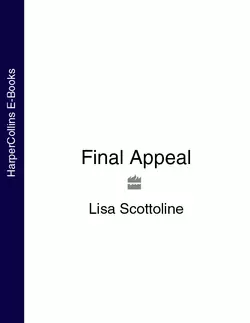Final Appeal

Lisa Scottoline
Тип: электронная книга
Жанр: Триллеры
Язык: на английском языке
Стоимость: 621.68 ₽
Статус: В продаже
Издательство: HarperCollins
Дата публикации: 16.04.2024
Отзывы: Пока нет Добавить отзыв
О книге: Hard-hitting and unforgettable, Lisa Scottoline’s Edgar Award winning second novel Final Appeal shines with her characteristic wit and gift for inventive plot.To Philadelphia lawyer Grace Rossi, who is starting over after a divorce, a part-time job with a federal appeals court sounds perfect. But Grace doesn’t count on being assigned to an explosive death penalty appeal. Nor does she expect to have an affair with her boss, Chief Judge Armen Gregorian.Then the unimaginable happens: an apparent suicide in strange circumstances leads to Grace becoming involved in a murder investigation. As events spiral out of control she finds herself unearthing a six-figure bank account kept by a judge with an alias, breaking into another judge’s chambers, and following a trail of bribery and corruption that has even the FBI stumped. In no time at all, Grace under fire takes on a whole new meaning.